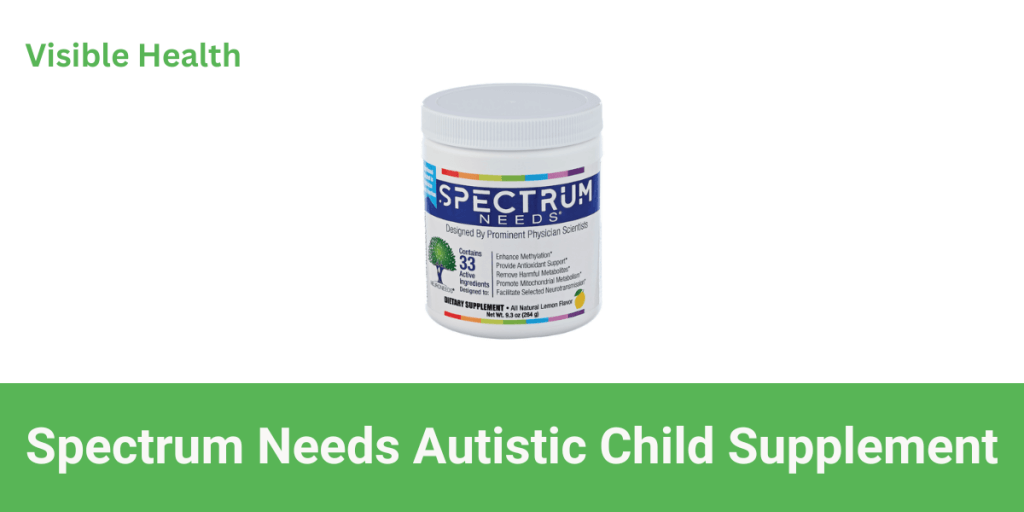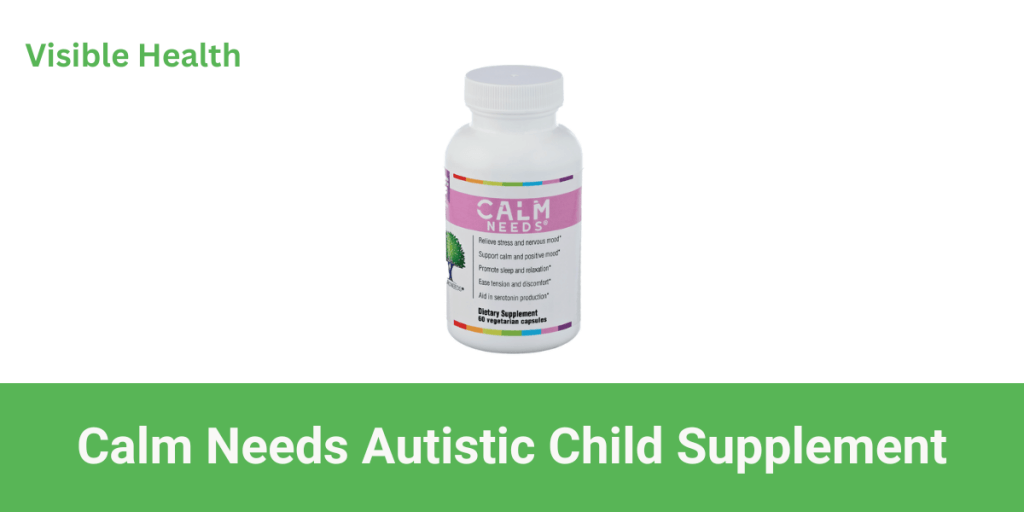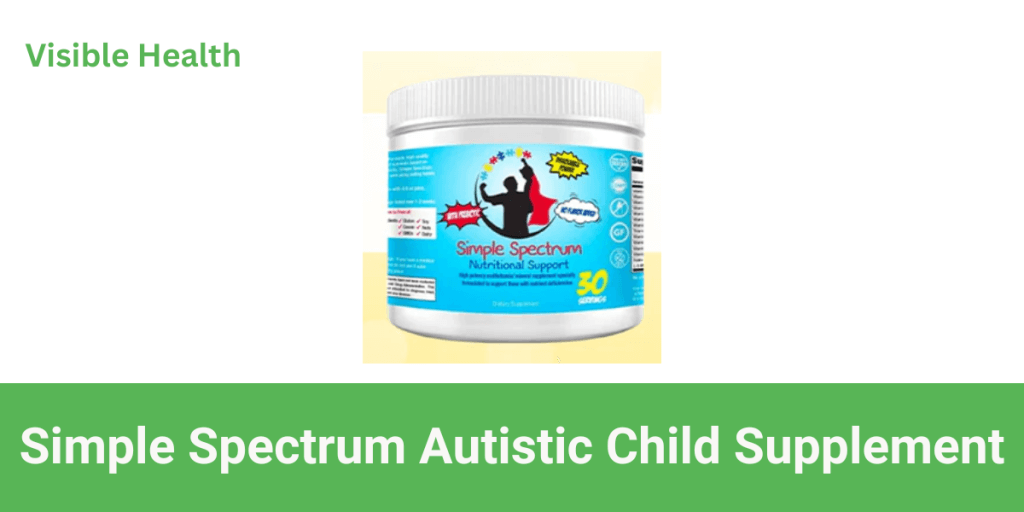Children with Autism Spectrum Disorder (ASD) often benefit from supplements that fill nutritional gaps caused by restrictive diets and gastrointestinal issues. Key vitamins and minerals like vitamin B6, vitamin D, magnesium, and omega-3 fatty acids play vital roles in alleviating symptoms and supporting overall health. Vitamin B6 helps with neurotransmitter synthesis and social interaction, while vitamin D deficiencies are strongly correlated with the severity of autism symptoms. Magnesium regulates neurotransmitters and promotes peak brain function, and omega-3 fatty acids support brain health and have anti-inflammatory properties. Exploring these supplements in more detail can help you better understand how to support your child’s unique needs.
What is Autism?
Autism Spectrum Disorder (ASD) is a chronic condition characterized by difficulties in social interactions, communication, and behavior, often accompanied by repetitive movements and restrictive eating habits.
For children with ASD, supplements are often necessary to compensate for nutritional deficiencies resulting from these dietary restrictions.
For example, many children with ASD have limited diets consisting of foods with few nutrients like chicken nuggets and french fries, leading to deficiencies in essential vitamins and minerals such as vitamins B12, D, and A, as well as iron and omega-3 fatty acids.
Why Do Children With Autism Need Supplements?
Children with autistic spectrum disorder (ASD) often face challenges in getting sufficient nutrients due to restrictive diets and gastrointestinal issues.
This can lead to nutritional gaps, which, if unaddressed, can exacerbate symptoms and hinder development. Additionally, digestive issues common in ASD, such as constipation and diarrhea, can further impede nutrient absorption.
A biochemical imbalance may also result from a genetic predisposition to ASD, compounded by environmental toxins. Given these factors, supplements can help fill these nutritional gaps and support overall health.
For instance, essential vitamins and minerals like Vitamin D3, B6, and B12, as well as Omega-3 fatty acids and probiotics, are often recommended to help manage ASD symptoms.
What Key Vitamins And Minerals Are Beneficial For Autism?
When considering supplements for your autistic child, it’s essential to focus on key vitamins and minerals that have shown benefits in supporting their health and development.
Specifically, vitamins like B6 and D, along with magnesium, have been linked to improvements in behavior, social interaction, and sleep.
Additionally, supplements such as omega-3 fatty acids and probiotics can support cognitive function and alleviate gastrointestinal issues commonly associated with autism.
Vitamin B6
Vitamin B6 plays a pivotal role in numerous enzymatic reactions affecting neurotransmitter production, detoxification, and overall cognitive health.
For autistic children, vitamin B6 is particularly important for brain function, mood regulation, and social interaction. It’s involved in over 100 metabolic pathways, including the synthesis of neurotransmitters like serotonin and dopamine, which are essential for mood management and sleep improvement.
However, children with autism might have difficulty converting vitamin B6 to its active form, pyridoxal 5-phosphate (PLP), which can lead to a deficiency. Supplementing with vitamin B6 and magnesium may help alleviate some symptoms, although research findings are mixed and further studies are needed to confirm its effectiveness.
Dosage is critical, as megadoses can cause adverse effects like irritability and hypersensitivity.
A well-balanced diet often provides adequate vitamin B6, but for autistic children with dietary restrictions or impairments in vitamin metabolism, supplementation may be beneficial.
For example, incorporating foods rich in vitamin B6, such as bananas and potatoes, into their diet can help support their neurological health.
Nonetheless, consulting a healthcare professional is essential before initiating any supplementation.
Vitamin D
Among the critical nutrients for autistic children, vitamin D stands out for its multifaceted roles in brain function and overall health.
Vitamin D is essential for neural cell proliferation and neurotransmission functions, and its deficiency has been strongly correlated with the severity of autism symptoms.
Regular vitamin testing is pivotal to identify deficiencies early. Daily dosing recommendations vary, but research suggests that 300 IU/kg/day of vitamin D3, up to a maximum of 5000 IU/day, can be beneficial.
Sunlight benefits also play a significant role in boosting vitamin D levels, making outdoor activities indispensable.
The risks of deficiency include impaired social communication and restricted behaviors. By addressing vitamin D deficiency through supplementation and sunlight exposure, you can potentially mitigate these risks and support ideal brain function in autistic children.
Magnesium
Magnesium plays a pivotal role in maintaining peak brain function and overall health in autistic children.
As an essential mineral, it contributes to the regulation of neurotransmitters like GABA and melatonin, which are essential for sleep and relaxation.
Research suggests that magnesium supplementation can alleviate symptoms of insomnia, hyperactivity, and anxiety in children with autism.
To maximize benefits, it’s essential to guarantee proper magnesium absorption through dietary sources such as dark leafy greens and whole grains, and considering supplements like magnesium threonate.
Magnesium deficiency should be addressed, and appropriate magnesium dosage should be discussed with a healthcare professional.
For example, incorporating magnesium-rich foods and supplements can help improve sleep quality, reduce hyperactivity, and enhance social interactions in autistic children.
Omega-3 Fatty Acids
As you explore the benefits of various supplements for autistic children, moving from the importance of magnesium to another essential component, you’ll find that Omega-3 fatty acids play a significant role in improving symptoms associated with autism spectrum disorder (ASD).
Omega-3 fatty acids, particularly EPA and DHA found in fish oil, are vital for brain health and development. These fatty acids have been shown to reduce inflammation, improve social interaction, and enhance cognitive function.
Supplementing with Omega-3 fatty acids can also contribute to better heart health. Daily recommended dosages vary by age: 700 mg for children aged 1-3, 900 mg for those aged 4-8, and 1200 mg for males aged 9-13.
Probiotics
Probiotics are a key component in managing autism symptoms, particularly in addressing gastrointestinal issues, which are prevalent among children with autism spectrum disorder.
Research suggests that certain probiotic strains, such as Lactobacillus reuteri and Bifidobacterium, can help restore the balance of gut bacteria, alleviating digestive issues and potentially influencing brain function.
By introducing beneficial bacteria into the gut, probiotics can help regulate bowel movements, reduce inflammation, and improve overall digestive health. This microbiome balance is essential, as an imbalance can lead to gastrointestinal problems and other health issues.
For children with autism, finding a probiotic with a wide variety of strains, including those mentioned, is necessary for achieving ideal results. Always consult with a healthcare professional before incorporating probiotics into an autism management plan.
Antioxidants
Antioxidants play a crucial role in managing autism symptoms by combating oxidative stress, a condition commonly found in children with autism spectrum disorder.
As a parent, you’re likely enthusiastic to know how antioxidants can help your child.
These powerful compounds boost cell defense by neutralizing free radicals, which can damage brain cells and contribute to autistic behaviors.
What Are the Best Supplements for Autistic Child?
For choosing the best supplements for your autistic child, consider products like SpectrumNeeds, CalmNeeds, and Simple Spectrum Nutritional, which are specifically designed to address nutritional gaps common in children with Autism Spectrum Disorder.
These supplements typically include a blend of essential vitamins, minerals, and nutrients that can help manage symptoms such as digestive issues, mood swings, and sleep disturbances.
For example, SpectrumNeeds offers a thorough formula that includes bioavailable vitamins and minerals, while CalmNeeds focuses on promoting relaxation and reducing anxiety with ingredients like magnesium and omega-3 fatty acids.
1. SpectrumNeeds
SpectrumNeeds is specifically formulated to meet the dietary needs of children and adults with autism spectrum and related neurodevelopmental disorders.

It contains 33 active ingredients, including vitamins, minerals, and activated cofactors, designed to optimize nutritional status and stimulate specific biological pathways for health promotion.
Dosage guidelines recommend using the enclosed scoop to measure out the amount of powder based on body weight, giving this amount twice a day mixed in any preferred beverage.
For infants under 22 lbs or 10 kg, consultation with a physician is advised.
Listed below are the benefits from spectrum needs supplement.
- providing a broad spectrum of micro-nutrition,
- promoting mitochondrial energy metabolism,
- generating essential cofactors,
- offering strong antioxidant support, and
- enhancing methylation.
While there are no specific clinical trials mentioned, the formulation is tailored to address common nutrient deficiencies in individuals with autism spectrum disorder (ASD).
Parent testimonials and product reviews aren’t provided in the factual information, but the product’s focus on addressing specific dietary needs is emphasized.
2. CalmNeeds
The dietary supplement CalmNeeds is specifically designed to address behavioral over-activity in children with autism spectrum disorder (ASD).

This supplement combines vitamins B6, magnesium, L-theanine, 5-HTP, and GABA to offer a natural path to calmness, day or night. Taking two capsules per day, or as directed by a healthcare practitioner, can help relieve stress and nervous mood, promote sleep and relaxation, support a calm and positive mood, ease nervous tension and discomfort, and aid in serotonin production.
CalmNeeds fits into daily routine optimization strategies by providing natural anxiety relief and emotional regulation techniques.
For fidgeting reduction methods, its ingredients work together to calm the nervous system. Sensitive individuals may start with one capsule and increase as tolerated. For children under 18, it’s recommended to consult a healthcare practitioner, with general dosages being one capsule for ages 6-12 and one or two capsules for adolescents.
3. Simple Spectrum Nutritional
Simple Spectrum Supplements aim to meet the nutritional needs of the developing nervous system in individuals with autism by filling potential dietary gaps with a rich formula of vitamins and minerals.

They’re designed to address nutrient deficiencies, often a result of dietary struggles in children with autism, by providing exhaustive spectrum support.
This support is vital for peak nervous function and brain health.
To use, mix the supplement with your child’s favorite food or drink, preferably 4-6 oz, and start with a low dosage, gradually increasing to the recommended dose based on their weight.
This approach helps guarantee that your child gets the necessary nutrients to support their growth and development effectively.
This supplement is specifically formulated to help fill nutritional gaps, promoting better overall health.
What Are The Safety Considerations When Using Supplements?
When introducing supplements into your autistic child’s regimen, safety considerations are paramount.
Consult with a pediatrician before starting any new supplements, as they can assess the child’s specific needs and potential interactions with medications.
Follow dosage guidelines carefully to avoid excessive intake of certain nutrients.
Check the product’s purity and label warnings to verify it doesn’t contain harmful substances.
For example, multivitamins should be chosen based on their methylated properties for peak absorption.
Regular check-ups with healthcare providers are vital to monitor the child’s progress and adjust supplement plans accordingly.
This helps prevent nutritional deficiencies and excesses, which are common in children with autism on restricted diets.
Adhere to professional guidelines to certify safe and effective use of supplements in managing autism symptoms.
Affiliate Disclosure: Some of the links in this post are affiliate links, which means I may earn a small commission if you make a purchase through those links. This comes at no extra cost to you. Thank you for your support!

